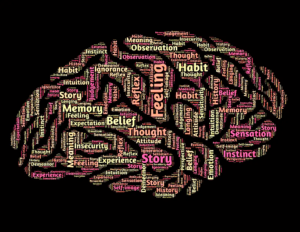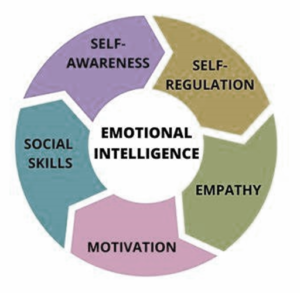Everyone is talking about… EMOTIONAL INTELLIGENCE

Everyone is talking about emotional intelligence right now – and we are too. In fact at Adalta we have been banging on about it for the last 20-years. Not because it is the management buzzword of the moment, but because it makes good – no great – business sense.
Traditionally people focused only on IQ – intellectual quotient – as the measure of their intellect and prospects. The term ‘IQ’ was first coined in 1912 by the psychologist William Stern. Mensa state that IQ is a type of standard score that indicates how far above, or how far below, his/her peer group an individual stands in mental ability. The peer group score is an IQ of 100; this is obtained by applying the same test to huge numbers of people from all socio-economic strata of society and taking the average.
Yet we all know really smart people who are limited in their lives because they just don’t engage and interact well with others. They have high IQ, but low EQ (emotional quotient). Indeed, for most employers a person’s emotional intelligence is a stronger predictor of success.
Firstly, let’s dispel a common myth. IQ is not distinctly different from EQ. The saying that IQ is from the head and EQ is from the heart is nonsense. There are different types of intelligences, and all are brain-related, whether these are IQ related, such as logic and reasoning, or EQ related, such as empathy and self-awareness.
Consider this… from a young age, people learn motor skills, reasoning, communication, sensing when Mum and Dad want something, music, plants and animals, and much more. It’s only when the young go to school that we tend to recognise what they’re learning as “intelligence.” The truth is that the young develop intelligence from the cradle. The good news is that we can all develop our intelligence – intellectual and emotional – whatever the age. That said, research suggests that our IQ peaks at between 17 and 20 years old. Our EQ, however, peaks in our 60s! So, the good news is that while your IQ may be a bit harder to change, anyone can work on developing a better EQ.
There is no getting away from the fact that people who have developed their emotional intelligence enjoy more success in every area of life: social, emotional, physical, and financial. This is because life almost always involves interacting in some way with other people, and high EQ people just make each interaction more rewarding for everyone.
Developing your EQ means:
- A better sense of self and identity, including own strengths and weaknesses and how they impact on others
- Ability to control and regulate own emotions
- Stronger relationships with colleagues
- Better communication skills
- Increased motivation
- Improved collaboration and problem-solving
- Better able to manage manage stress and conflict
- Improved physical and mental health and wellbeing
While EQ isn’t always easy to change quickly, with focused effort, most people can improve their emotional intelligence with self-reflection and feedback from others. So although EQ naturally increases with age, investing conscious and focused effort on developing it can lead to greater success and fulfilment in all areas of life – personal and professional.

There are four main pillars that support a healthy emotional intellect.
- High EQ people are self aware.
Instead of just feeling without understanding the source, they can trace their emotions back to their origins and see them logically. They also have a realistic grasp of their strengths and weaknesses. They know what motivates them and are self-driven. - High EQ people conduct self-management.
Self-management describes a person’s ability to be resilient, set goals and achieve them through managing time, prioritising workload and managing pressure/stress). These people can rein themselves in (self-control), delay gratification, account for the needs of others, and balance their desires and priorities accordingly. They can also walk the middle ground between initiative and patience. They handle change and pressure well, and set and meet goals and commitments. - High EQ people are socially aware.
People with high social awareness demonstrate empathy. They can read others behaviour and tune in to other people’s emotions and feelings and can adapt to unspoken social cues. They can also adapt their leadership style and approach to meet the needs of others. - High EQ people excel at relationship management.
They are great team players who can engage others, work collaboratively, inspire and influence people positively, communicate well, and leverage difficult conversations and conflict in ways that build trust and create dynamic relationships.
Whether you are looking to develop specific capabilities that require emotional intelligence, or whether you are looking to develop into an emotionally intelligent role model or leader, please do get in touch. As an established training provider in this field for over 20 years, we have a comprehensive portfolio of training and coaching, or can create something that is tailored to your specific needs.

